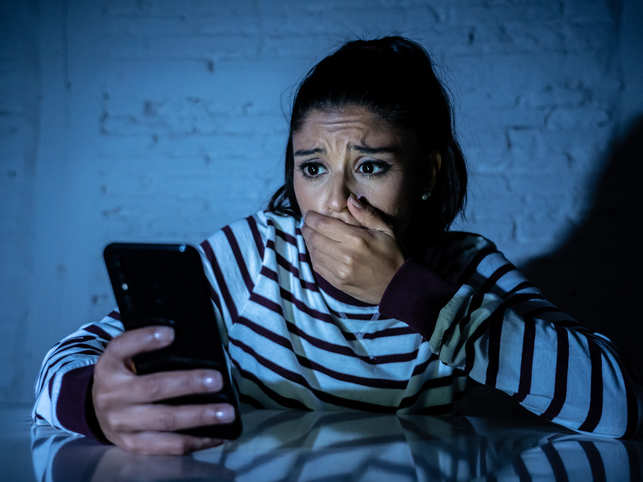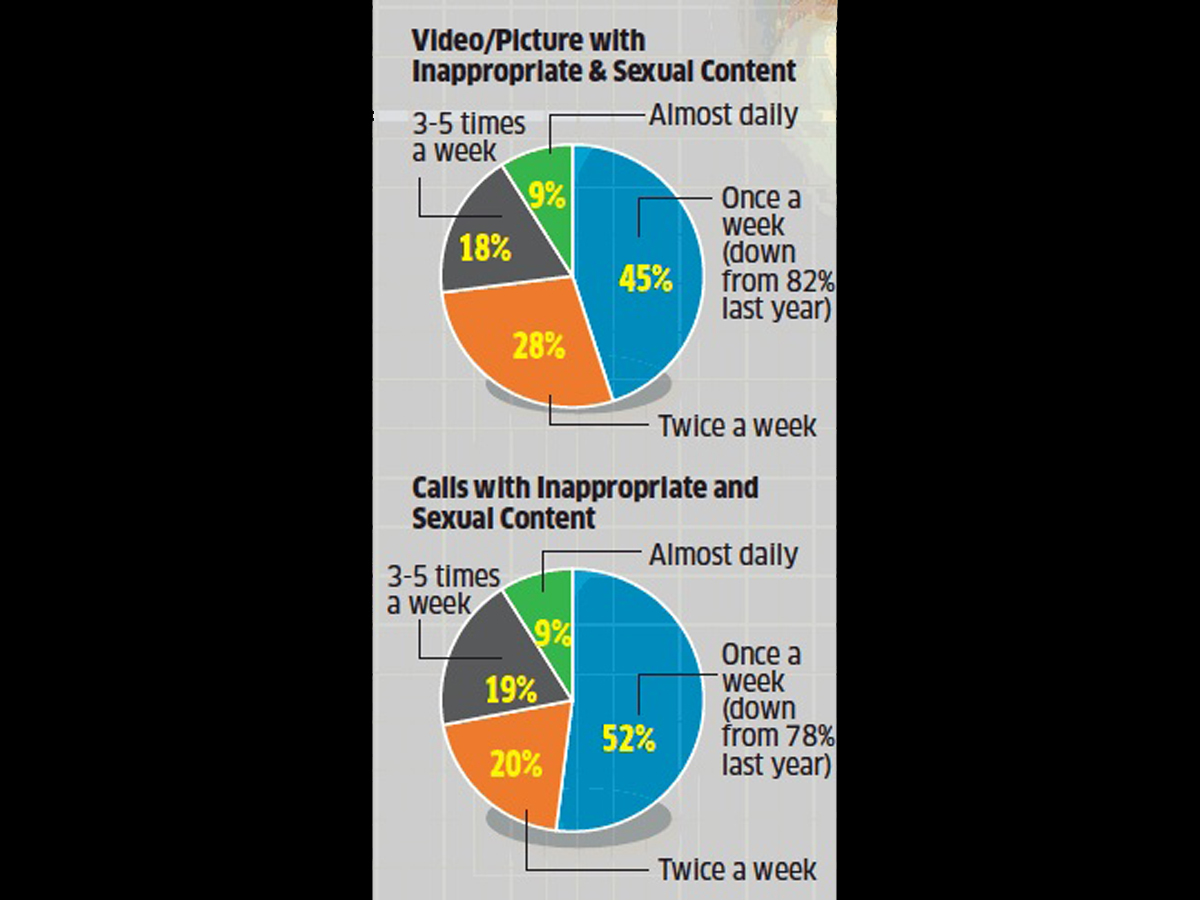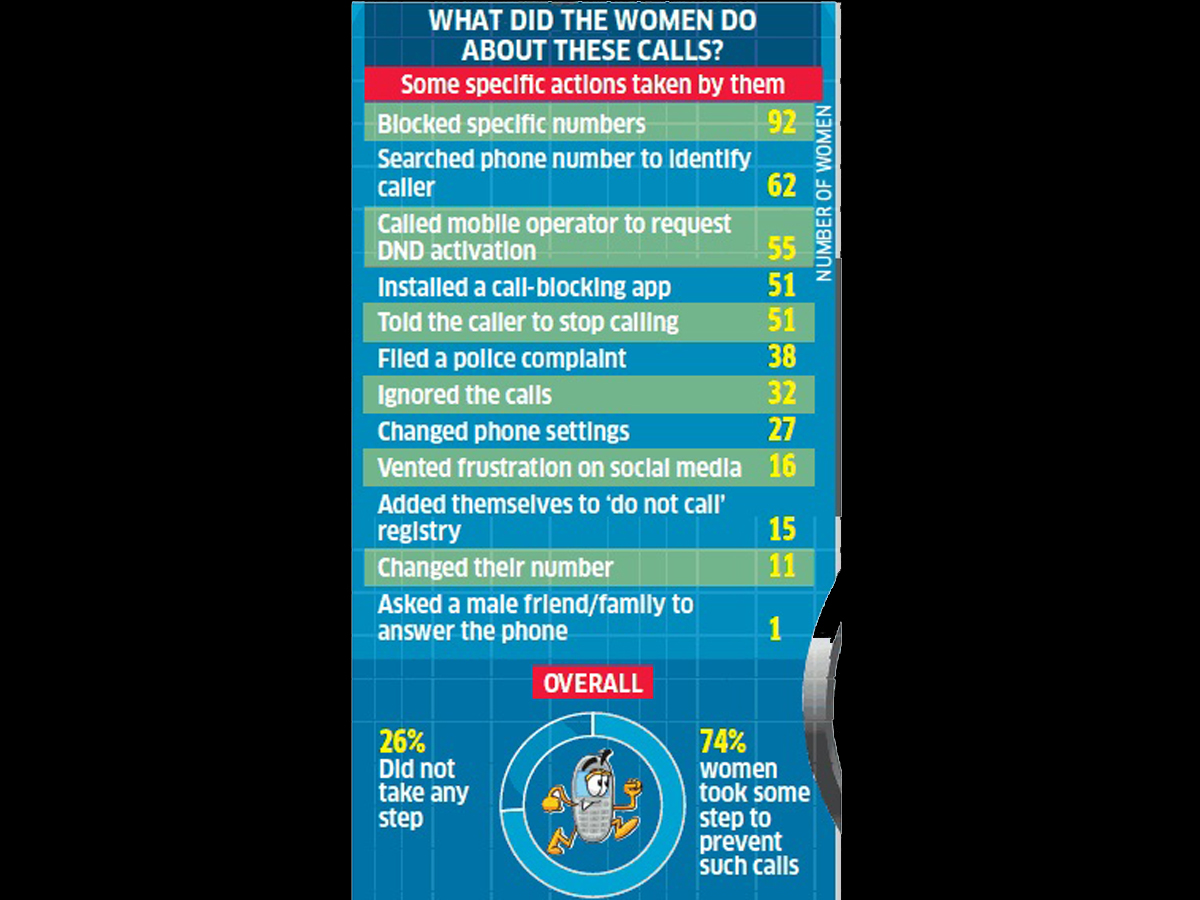
The survey paints a grim picture of the extent of harassment women face via their phones. It has also compiled women’s responses on what effect such calls had on them and what steps, if any, did they take to prevent such calls. Apart from calls with intentions of malicious harassment, the women also received unsolicited calls — that aren’t classified as harassment — from banks, financial institutions, telecom operators, etc.
FREQUENCY OF CALLS/MESSAGES WITH INAPPROPRIATE AND SEXUAL CONTENT
More than half of the surveyed women receive calls with such content regularly at least once a week, while 9% receive it almost on a daily basis. However, the percentage, though still high, has declined from the previous year, showing that women are possibly taking more steps against such calls.

WHO MADE THE CALLS?
Not all calls were anonymous, as some were made by persons known to the victims and some others by stalkers.
74 % – Anonymous callers
23 % – Calls/texts by stalkers (11% last year)
11 % – Calls/texts by known persons
PHISHING CALLS
More than half the women (53%) received phishing calls, that is, fraudulent calls made with an intention to elicit personal information such as passwords and credit card numbers.

ARE BLANK CALLS HARASSMENT OR NUISANCE?
A majority of the women surveyed considered blank calls as harassment. The survey defined blank calls as “anonymous phone calls made with the intention to threaten, harass or offend a caller, without a sales- or phishing-related objective”
Effect of Such Calls on Women
Nearly four out of every five women said they felt anger and irritation due to harassment calls, while about one in three were more affected and felt troubled, worried or frightened. The number of women affected has gone up from the previous year, indicating the effect of such calls on mental health is getting worse.
78 % – Felt angry or irritated (65% last year)
37 % – Felt troubled, worried or frightened (22% last year)
THE SURVEY
The survey was carried out by Truecaller, an app that finds details of phone numbers, and Ipsos, a market research firm. The survey was conducted between February 9 and 25, 2019. The respondents were 2,150 women aged between 15 and 35 from 14 Indian citie
[“source=economictimes.indiatimes.”]
